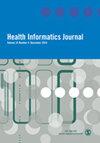Systematic review of subjective validation methods for computerized colonoscopy simulators
IF 2.2
3区 医学
Q2 HEALTH CARE SCIENCES & SERVICES
引用次数: 0
Abstract
Introduction: In recent years, different approaches have been used to conduct a subjective assessment of colonoscopy simulators. The purpose of this paper is to review these different approaches, specifically the ones used for computerized simulators, as the first step for the design of a standard validation procedure for this type of simulators. Methods: A systematic review was conducted by searching papers after 2010 in PubMed, Google Scholar, ScienceDirect, and IEEE Xplore databases. Papers were screened and reviewed for procedures regarding the subjective validation of computerized simulators for traditional colonoscopy with an endoscope. Results: An initial search in the databases identified 2094 papers, of which 7 remained after exhaustive review and application of exclusion criteria. All studies used questionnaires for subjective validation, with “face” being the most common validity type tested, while “content” validity and “usability” were less prominent. Conclusions: A classification of subscales for testing face validity was derived from the studies. The Colonoscopy Simulator Realism Questionnaire (CSRQ) was selected as the guide to follow for the development of future questionnaires related to subjective validation. Mislabeling of the validity tested in the studies due to ambiguous interpretations of the validity types was a common occurrence observed in the reviewed studies.计算机化结肠镜检查模拟器主观验证方法的系统回顾
介绍:近年来,人们采用了不同的方法对结肠镜检查模拟器进行主观评估。本文旨在回顾这些不同的方法,特别是用于计算机化模拟器的方法,以此作为设计此类模拟器标准验证程序的第一步。方法:通过在 PubMed、Google Scholar、ScienceDirect 和 IEEE Xplore 数据库中搜索 2010 年之后的论文,进行了一次系统性回顾。筛选并审查了有关使用内窥镜进行传统结肠镜检查的计算机化模拟器主观验证程序的论文。结果:在数据库中进行初步搜索后发现了 2094 篇论文,经过详尽审查并应用排除标准后,保留了 7 篇论文。所有研究都使用问卷进行主观验证,其中 "表面 "验证是最常见的验证类型,而 "内容 "验证和 "可用性 "验证则不太常见。结论从这些研究中得出了用于测试表面效度的子量表分类。结肠镜检查模拟器真实性问卷(CSRQ)被选为今后开发主观效度相关问卷的指南。由于对效度类型的解释含糊不清,导致研究中测试的效度标示不清,这在所审查的研究中很常见。
本文章由计算机程序翻译,如有差异,请以英文原文为准。
求助全文
约1分钟内获得全文
求助全文
来源期刊

Health Informatics Journal
HEALTH CARE SCIENCES & SERVICES-MEDICAL INFORMATICS
CiteScore
7.80
自引率
6.70%
发文量
80
审稿时长
6 months
期刊介绍:
Health Informatics Journal is an international peer-reviewed journal. All papers submitted to Health Informatics Journal are subject to peer review by members of a carefully appointed editorial board. The journal operates a conventional single-blind reviewing policy in which the reviewer’s name is always concealed from the submitting author.
 求助内容:
求助内容: 应助结果提醒方式:
应助结果提醒方式:


